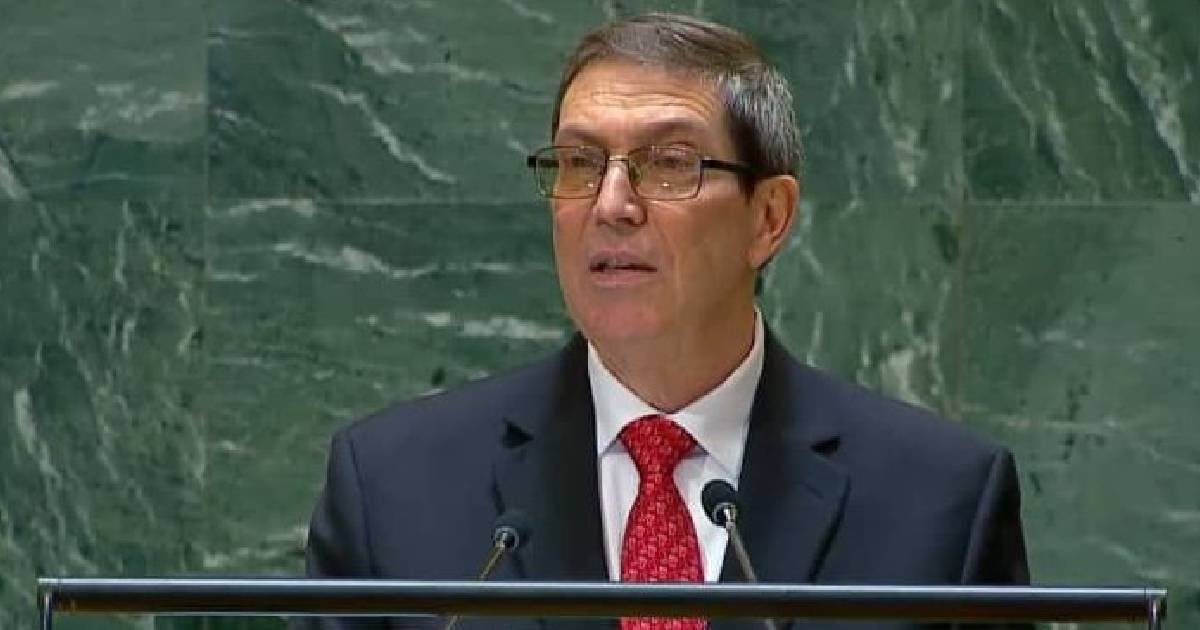The Cuban Foreign Minister, Bruno Rodríguez Parrilla, recently spoke about the government's intention to rejuvenate the nation’s economy. However, the reality on the ground for the Cuban population remains starkly different from the official narrative. Though Rodríguez Parrilla refrained from detailing specific actions and instead employed the usual rhetoric of the island's leaders, he did mention a desire to change "in whatever is necessary," albeit "within the limits of our national culture."
In an interview with Newsweek from New York, the Cuban Foreign Minister discussed what the government views as efforts to transform the economy. Rodríguez Parrilla suggested that the focus should not be on change itself, but rather on "where we are heading with these changes." He also warned about "semantic triggers" emerging amid what he describes as a global cognitive and moral crisis. According to him, people are more engrossed in their mobile devices than in critically thinking about their reality.
However, this assertion seems disconnected from the real concerns of the Cuban populace, who are grappling with a severe economic and social crisis. Basic goods have become increasingly scarce and infrastructure continues to deteriorate. The minister emphasized that the proposed changes aim to improve "common welfare" and bolster social policies, while acknowledging that expecting American levels of consumption would be unrealistic. Rodríguez suggested that the realistic changes are not aimed at achieving living standards akin to those in developed capitalist societies, but rather a form of collective prosperity where "spiritual goods" are as valued as material ones.
Disconnect Between Government Promises and Reality
These promises, however, starkly contrast with the daily experiences of many Cubans. Material goods have not only failed to improve but have become more scarce and expensive in recent years. The increasing emigration of young people reflects a lack of faith in the feasibility of the dreams and life plans Rodríguez mentions within the current system. The gap between the minister's statements and the social realities, compounded by the absence of significant economic reforms, is hard to ignore.
Rodríguez also criticized the American perspective on change in Cuba, labeling it as "interventionist" and accusing it of aiming to restore a colonial exploitation system similar to the one before 1959. According to the minister, the U.S. government aspires to "reclaim their banks, their large estates, their railway systems, their mining companies, and their telephone companies."
Questioning the Real Barriers to Reform
Yet, many both inside and outside of Cuba question whether it is truly the United States that is obstructing necessary reforms or if the island’s own political and economic structures are to blame for stalling significant progress toward greater prosperity. While the Cuban government insists that changes are on the horizon, the critical question remains whether these changes will be sufficient to address the profound deficiencies plaguing Cuban society.
Rodríguez's words reflect an optimistic vision within the framework of the Cuban government, but the reality on the ground continues to paint a picture of uncertainty and despair for many of its citizens.
